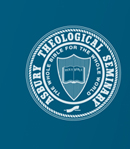Abstract
This essay compares Paul’s use of aliens, strangers, and citizens language in Eph 2:12, 19 in the wider context of the epistle with its figurative use in select Hellenistic Philosophical writers. Whereas philosophers view all, or at least the virtuous, as citizens of the universe, Ephesians sees all as alienated from God, unless reconciled by Christ. Philosophy called the virtuous to live in accord with its path, disdaining the body. For Ephesians, Christ’s new humanity in Christ can live God’s way in the body by the mystery revealed and empowered by the Spirit.
DOI
10.7252/Journal.02.2022F.10
Recommended Citation
Richardson, Philip N.
(2022)
"No Longer Strangers and Aliens, but Fellow Citizens: Ephesians 2:12, 19 in conversation with Hellenistic Philosophy,"
The Asbury Theological Journal:
Vol. 77:
No.
2, p. 359-377.
Available at:
https://place.asburyseminary.edu/asburyjournal/vol77/iss2/11
Included in
Biblical Studies Commons, Christian Denominations and Sects Commons, Missions and World Christianity Commons

